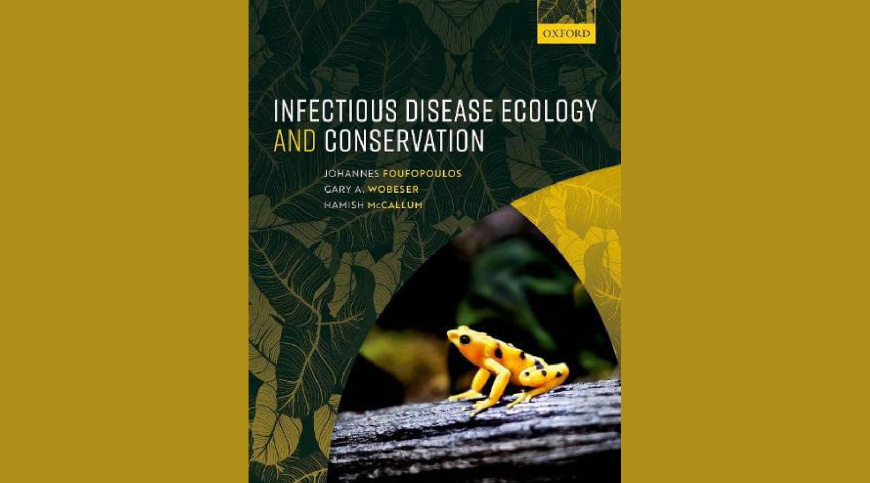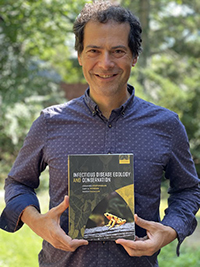
 back to all news
back to all news
“Infectious Disease Ecology and Conservation" book sheds light on wild animal diseases and offers solutions

The COVID-19 pandemic has brought to light the problem of emerging pathogens and the unpredictable dangers they pose for human health, but what most people don’t realize, is that the same processes that promote the emergence of human diseases—international travel and commerce, wildlife poaching, deforestation and climate change—have caused similar outbreaks of devastating pathogens in wildlife populations. In a new book, “Infectious Disease Ecology and Conservation,” the authors, led by SEAS Associate Professor Johannes Foufopoulos, shed light on the origins and extent of the worsening problem of emerging wild animal diseases and offer solutions to evaluate and control wildlife disease outbreaks and address urgent conservation problems.
 “When we look at the emergence of human diseases, we need to acknowledge that a parallel conservation crisis with similar outbreaks of devastating pathogens is also occurring in wildlife populations,” says Foufopoulos. These outbreaks now regularly result in wildlife population collapses or even terminal species extinctions, yet the pathogens themselves are often shrouded in mystery. This is why, Foufopoulos says, the book is focused on informing the general public about the significance of emerging pathogens for species conversation while also providing tools for conservation managers to diagnose, manage, and ultimately recover wildlife populations battered by infectious disease epidemics.
“When we look at the emergence of human diseases, we need to acknowledge that a parallel conservation crisis with similar outbreaks of devastating pathogens is also occurring in wildlife populations,” says Foufopoulos. These outbreaks now regularly result in wildlife population collapses or even terminal species extinctions, yet the pathogens themselves are often shrouded in mystery. This is why, Foufopoulos says, the book is focused on informing the general public about the significance of emerging pathogens for species conversation while also providing tools for conservation managers to diagnose, manage, and ultimately recover wildlife populations battered by infectious disease epidemics.
The book, borne out of a collaboration between three authors with varying backgrounds—Foufopoulos, an ecologist; Hamish McCallum, a theoretical population biologist; and Gary Wobeser, a wildlife veterinarian—is interdisciplinary in nature, with each field bringing its own approaches and solutions to infectious disease. “For the first time, there’s a book that not only explains this complex topic in an accessible manner but also integrates these approaches into a functional toolbox for conservationists,” says Foufopoulos. “Infection and parasitism are by their very nature somewhat hidden processes, and sick animals will typically hide, making it difficult to evaluate the impacts. One day the animals are still there, and then a few days later they have all disappeared forever, and unless one looks specifically for disease, one will almost certainly miss it.”
The authors also highlight the importance of recognizing the extent to which human activities are driving, directly or indirectly, wildlife disease outbreaks. “Activities such as international travel and commerce, pet trade and biomedical manipulation, disseminate novel pathogens into immunologically naive wildlife populations. And through habitat destruction, wildlife poaching and climate change we have put stress on natural ecosystems and have made them susceptible to these new pathogens,” says Foufopoulos. He explains that preventing the emergence, rather than just addressing the impacts of wildlife epidemics is not only the most ethical and conservation-friendly approach but will result in important dividends for human health. “Unless we confront and address the root causes of this problem, we will not just continue causing wildlife extinctions but also endanger human health by setting the stage for devastating human epidemics.”

